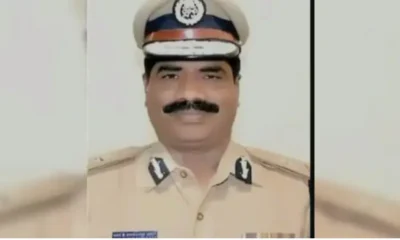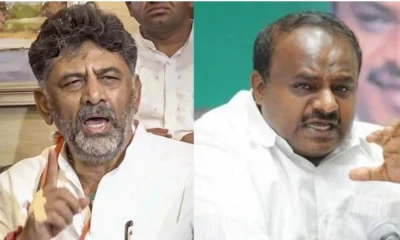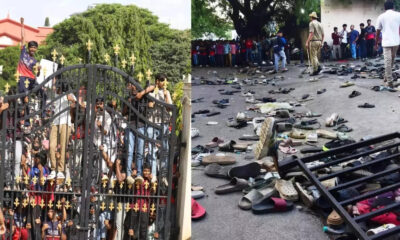The 10-day ‘Gaon Bandh’ protest of farmers started today, Friday, June 1 with fresh produce from farms and thousands of litres of milk in many places being dumped on streets.
The issues the farmers are pressing for are minimum assured income of Rs.18,000 per month for every agriculturist’s family, implementation of Swaminathan Commission’s report, a price for their produce that gives them 50% more than the total weighted cost of production and waiver of all loans.
Several farmers’ organisation of different states have come together for this agitation on the calll of Rashtriya Kisan Mahasangh (RKM), an umbrella body of over 100 farmers organisations. The RKM made it clear that farmers will not supply any vegetables and dairy produce to the cities for the next 10 days, nor would they buy anything from cities. City dwellers can go and buy farm produce from villages if they want.
The farmers who have called for the 10-day long protest will observe ‘Gaon Bandh’ from 1 June to 10 June, June 5 as Dhikkar Divas, June 6 as Saheed Sahadat Divas, June 8 as Asahyog Divas and June 10 as Bharat Bandh.
The federation has assured that farmers won’t block any roads, but they will sit on dharna along 30 major highways in the country.
Farmers are enthused over this new form of agitation and are more confident over its prospects as they see this as more effective than dharnas and rallies which they used to resort to till now.
The seven states where the protests are being held are Haryana, Rajasthan, Jammu and Kashmir, Madhya Pradesh, Maharashtra, Karnataka and Kerala, according to media reports. Farmers in Punjab wearing green turbans were seen throwing vegetables, fresh fruits and spilling milk on streets, said media reports. Milk flowed on streets and tomatoes were dumped on a highway near Nashik in Maharashtra.
The hold up along with wastage is going to badly hit the cities.
“This has now become a nation-wide agitation. We have named the protest ‘Gaon Bandh’. We won’t go to cities, as we don’t want to disturb the normal lives of the people. We have decided to observe a Bharat Bandh on 10 June till 2 pm. We would request businessmen in cities to close their shops till 2 pm,” said RKM president Shiv Kumar Sharma.
He added that if anyone wants to buy vegetables and dairy products, they will have to drive to the villages.
The protest also marks the first anniversary of death of seven farmers in police firing in Madhya Pradesh’s Mandsaur on June 6 last year.
“The government responds to the rightful demands of the farmers with lathis and bullets. June 6 is a black day for farmers. Nothing will be supplied by villages to cities for the next 10 days, neither will anything be brought from the cities during the period,” Aam Kisan Union chief Kedar Sirohi said.
Mandsaur was the epicentre of farmers’ protest last year when hundreds of farmers demanded better prices for their crops and loan waivers. The protests turned violent and seven farmers lost their lives in police firing.
Fearing a repeat, the Mandsaur district administration has made elaborate security arrangements. Some farmers have also been made to sign surety bonds to ensure that they would not indulge in violence, reported news agency IANS.
Farmers in Madhya Pradesh have held intermittent protests over the last year-and-a-half regarding issues such as low MSP, prices lower than MSP, inadequate storage facilities, loan-waiver. Most recently, farmers in the state took to the streets to protest when garlic prices slumped to as low as Re 1 per kilogram, with the Madhya Pradesh government’s flagship Bhavantar scheme proving to be of little use.
Home Minister Rajnath Singh, who was in Bhopal on Thursday, however, dubbed the farmers’ agitation as an agitation of the Congress party, according to IANS. “The Bharatiya Janata Party (BJP) government in the state is working for the welfare of farmers and it has taken several big decisions in their interest,” he said.
Trashing the charge, newly appointed state Congress chief Kamal Nath said it is surprising that those who ordered firing at the farmers are now trying to shift the blame for violence on his party.
The strike is likely to affect the supply of milk, fruits and vegetables in cities and towns. Sandeep Gidde, coordinator of the strike said, “Starting Friday, we will stop the supply of milk and vegetables to cities. Farmers will station themselves along highways to stop vehicles transporting milk and vegetables.” He expressed confidence that the strike would be successful.
The RSS-affiliated Bharatiya Kisan Sangh has decided not to join farmer protests in eight states, calling the 10-day strike “politically motivated”.
Mohini Mohan, national secretary of the Bharatiya Kisan Sangh, told News18.com that the latest protests were aimed at influencing the 2019 Lok Sabha elections. “There are politically motivated elements that plan violence and this one has been organised keeping 2019 elections in mind. We don’t want to be part of it.”


 Latest world news15 hours ago
Latest world news15 hours ago
 Latest world news15 hours ago
Latest world news15 hours ago
 Latest world news15 hours ago
Latest world news15 hours ago
 India News15 hours ago
India News15 hours ago
 India News6 hours ago
India News6 hours ago
 Latest world news6 hours ago
Latest world news6 hours ago














